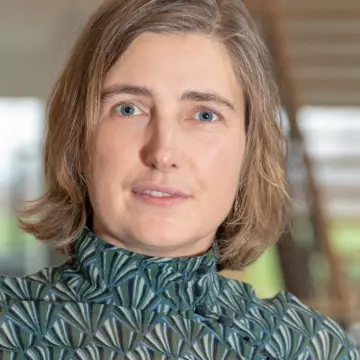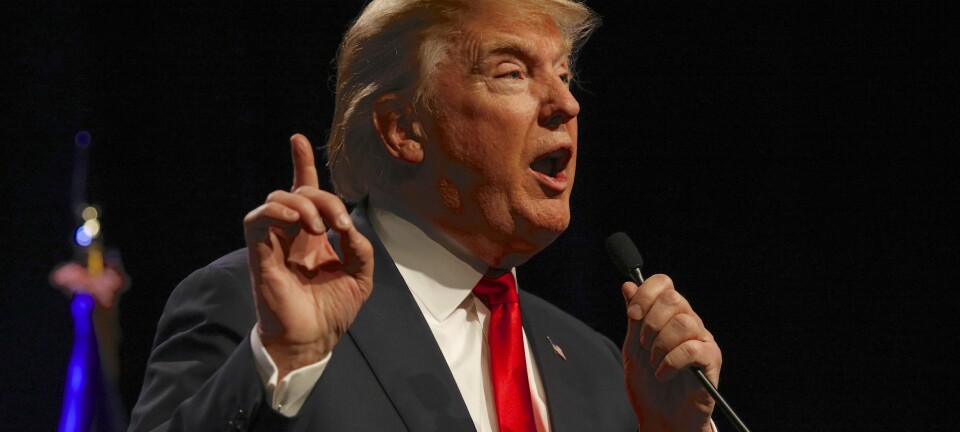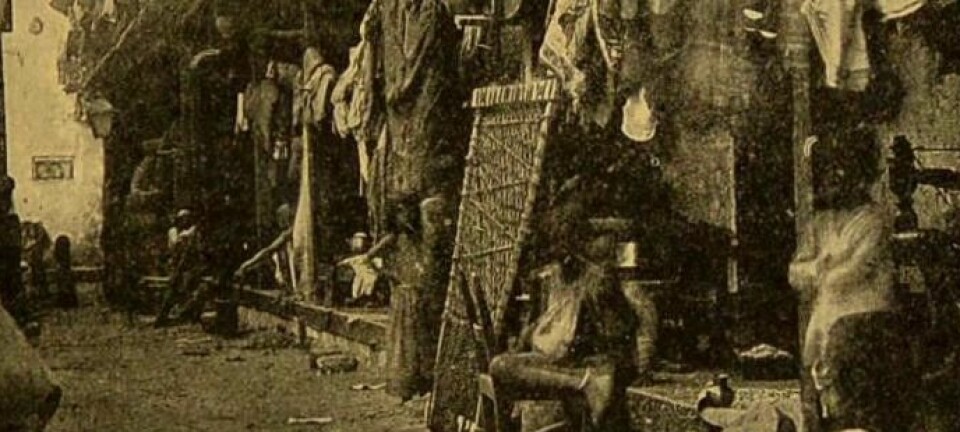Researchers' Zone:

The pandemic demonstrates that facts are not just facts
COMMENT: The pandemic has done more for science than years of laborious research. This is not least the case concerning the importance of 'facts', the question of how science actually comes about and the value of interdisciplinary science.
Many critics of the so-called post-factual society want to go back to a bygone era when a spade was called a spade and facts were something that citizens did not question.
If we were able to construct our societies on scientific facts, then everyone would march in the same direction, the fog would evaporate and all would be well again.
But there is something these critics have not quite understood, as the current pandemic provides great insight into – if only you pay attention: scientific facts have never been unambiguous datapoints but rather complicated, fabricated and ambiguous products.
The death tolls registered of COVID-19 cases during the pandemic seem to provide unequivocal facts. For either one is dead or one is not dead, right?
However, different countries and regions operate with different practises and means of carrying out investigations and counting the dead. Besides, the infected people in different countries, regions and boroughs often have very different underlying levels of health.
And is the deceased dead due to COVID-19 or dead and then tested positive for COVID-19? These very concrete insecurities in the current pandemic show that we often end up comparing ‘apples to oranges’ and that facts are not just facts.
‘Facts’ should always be examined in more detail
That we live in post-factual society does not mean that facts no longer exist. Quite the contrary, they are everywhere, but the post-factual society reveals the importance of accepting facts with a number of reservations and that we have to learn to examine how the individual facts have come about, as well as what considerations and interests they reflect.
Facts are complicated units in which theory and practise are embedded in each other.
During the pandemic, everyone who watches television or reads newspapers can bear witness, practically on a daily basis, to scientists who disagree on what the facts are, how facts should be interpreted and what consequences we may draw based on them.
This kind of disagreement feels stressful, confusing and often personally overwhelming because it concerns the safety of one’s family, one’s work situation and freedom of movement here and now.
Forced into action without absolute knowledge
The pandemic underscores another characteristic of the post-factual society – namely, the ‘incomplete knowledge base’ of our understanding of complicated real-world affairs.
In laboratories, where the environment can be controlled and the context is simple, it is possible to reproduce effects and demonstrate more or less unequivocal connections between causes and effects.
But in a complex and real situation of crisis with thousands of variables, we do not have the means to turn back time and perform repeated tests with minor variations of the many decisive variables.
In such situations, there is always an 'epistemic deficiency' (a lack of knowledge) that we try to compensate for to the best of our ability. This happens at the same time as we are forced to act, and the world is changing.
Science debates on an open stage
Right now, we are witnessing what has been called 'Science in the Making', which is an important concept to bear in mind and a crucial dimension of the post-factual society.
Often, when we encounter natural science in a classroom setting, for example, we are introduced to facts after they have been polished and presented in a shiny textbook with firm conclusions in black and white.
This helps maintain the ingrained trust in unambiguous facts. In the present situation, on the other hand, we are witnessing many of the disagreements that exist in science; what different scientists declare as facts and how these facts are presented, discussed and constantly revised.
It is in this complex context that science comes to be and where it has its origins, and as citizens and political society we are not used to being a part of that discussion on an open stage.
The discussion of facts is a democratic good
Facts are and should be discussed publicly rather than uncritically presented and adopted as truth. Facts should not remain 'black boxes' that we neither can nor dare open up and look into.
In this way, the post-factual society is a liberation and very much compatible with an open democratic society in which we, as enlightened citizens, discuss decisions, strategies and future scenarios.
If we, as citizens, do not discuss what price we are willing to pay for the pandemic and various solution strategies, we will have handed over crucial societal power to a small elite of physicians and politicians.
In a well-educated population, the post-factual society is not a threat. Here it is possible for a great part of the population to acquire knowledge of the corona pandemic and pose relevant questions to decisions on policy.
It is only really dangerous if we do not maintain our ability of being critical towards those who can see only one definitive solution. If, due to the seriousness of the situation, we all remain silent and merely listen to a small group of experts, the democratic warning lights ought to come on.
A loss of our critical skills can lead to a hierarchical and undemocratic way of living and thinking. For this reason, it is important that we have the opportunity to speak up and for our views to collide.
Myth: China has deliberately unleashed the virus
Conversely, one might rightly ask whether the post-factual society leaves the doors wide open for credulous beliefs, pseudo-science and all sorts of conspiracy theories.
Most conspiracy theories are fuelled by an epistemic deficiency coupled with a political interest. This is evident in questions as to whether the coronavirus is an artificial medical weapon produced by China to bring down the West are able to thrive when there is a lack of medical knowledge about the virus.
Since we cannot immediately determine whether something is a conspiracy theory or grounded in reality, several independent teams of physicians have set out to investigate whether the coronavirus could be an artificial virus created in a laboratory.
They have refuted this hypothesis, so the epistemic deficiency that enabled such conspiracy theory to thrive has been filled (see here and here).
Tendency to believe more strongly in what we want to be right
This does not change the case as much of what is being reported in the context of the pandemic is still located in a grey area of science, half-truths, politics and media logic. This is the situation that we, as a democratic society, must be able to handle.
We can and must demand that theories are supported by observations and arguments. We should also recognise that we are often willing to accept far less rigour in relation to a piece of evidence that shows something we would like to believe in than in a piece of evidence that contradicts what we would like to be the case.
»These mechanisms go by different names: confirmation bias, identity protective cognition, (politically) motivated thinking, cultural cognition, bias-embossed assimilation, etc., but what they all have in common is that they support a targeted treatment of evidence – directed toward the affirmation of one’s desired conclusions,« as Bjørn Hallsson and Klemens Kappel have previously expressed it here on Forskerzonen.
Therefore, it is important that we as citizens let ourselves be informed about medical knowledge, consider which interests and future scenarios should be given the most weight and participate in discussions of policy decisions.
Everyone can contribute to the development of science
When we take the epistemic deficiency seriously as a fundamental scientific and existential condition, it becomes important to listen to the experiences of individual citizens, not least in the context of a complex life-threatening phenomenon such as a pandemic.
As mentioned, it is not clear from the outset to which extent new knowledge claims rely on misunderstandings, contain some level of truth or, for example, turn out to be very important individual experiences of the infection and the actions that have been taken to fight the pandemic.
Taking account of the impressions and testimonies of the public shows yet another exciting dimension of creating knowledge that defines the post-factual society.

This is a dimension closely linked to what is called 'open science', which we may characterise as science where there is no longer a clear a priori (a pre-given dogmatic) limit to who can contribute to and are legitimate actors in the development of science.
At a social and existential level, there is also a need to consider overall what changes come about when decisions are made in something akin to a state of emergency by a few experts and politicians.
Apart from models of disease development and economic forecasting, the open, democratic society also needs empathy and ethics as well as consideration of the human rights of citizens and especially of vulnerable groups.
It is important to consider what we sacrifice in order to reduce fatality as much as possible and to avert our health care system being overwhelmed; for the measures that are introduced may have a major long term impact on our lives and our rights as individuals in a democratic society.
Neither the virologist nor the economist has all the answers
Interdisciplinary science is an important element of the post-factual society. It is essential to realise that a virologist neither produces nor is interested in the same type of facts as a sociologist, a psychologist or an economist.
The former has an understanding of how viruses live and reproduce but not necessarily any idea of how to lead a nation in a time of crisis or what psychological and economic consequences it might have to close down a society.
This is where sociologists, psychologists, economists and politicians have their strengths. Acting politically in this situation is a balancing act between what the best epidemiological strategy is and what the psychological, socio-economic and democratic consequences of the strategy are assumed to be.
It is an interdisciplinary dialogue in which we must all partake in order for the strategy to work in practice.
Dialogue is essential to our democracy
The current pandemic is a worldwide crisis of enormous proportions. Therefore, it is important that we engage in a dialogue about the solutions put in place.
We do not know what we are going to arrive at on the other side.
If we do not, in a broad sense, take a stance on the political initiatives and debate them courageously, we will have entrusted crucial power over society to a small elite, and the danger may ensue that victory over the virus and the re-opening of society will become a defeat of democracy and a farewell to the public dialogue on the matters that concern us the most.
A nation without a population that is actively debating pros and cons of current political decisions, but is merely cooperating along the lines of a small, powerful elite, is constantly on the verge of internal collapse.
Søren Riis and Esther Oluffa Pedersen have previously unfolded some of the ideas presented here in an interview with RUC-paper.
Translated by Stine Zink Gaasagaard. Read this article in Danish at Videnskab.dk's Forskerzonen.
Sources
Esther Oluffa Pedersen’s profile (RUC)
'Confirmation Bias: A Ubiquitous Phenomenon in Many Guises'. Review of General Psychology (1998).
'The Case for Motivated Reasoning'. Psychological Bulletin (1990).
———








